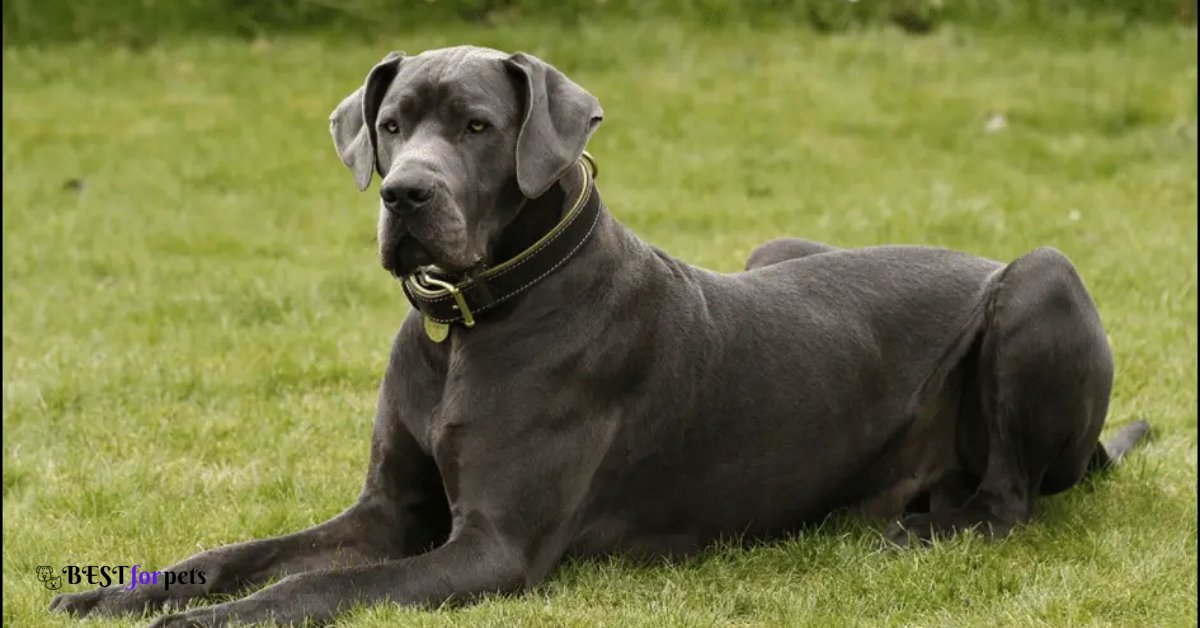Golden Retriever Vs Great Dane
Golden Retriever vs Great Dane: History and Origins
Golden Retriever: The Golden Retriever’s history dates back to the mid-19th century in Scotland. They were originally bred by crossing the now-extinct Yellow Retriever with the Tweed Water Spaniel and Bloodhound. Their primary purpose was to retrieve game from both water and land, making them excellent hunting companions.
Over time, they transitioned from hunting to becoming beloved family pets due to their friendly disposition and intelligence.
Great Dane: Great Danes, on the other hand, have a much older history. Their origins trace back to ancient civilizations, particularly in Egypt, where similar-looking dogs were depicted in art and hieroglyphics.
The modern Great Dane we know today, however, hails from Germany, where they were initially bred for hunting large game and later for guarding estates. They were known as “Boar Hounds” for their prowess in hunting wild boars.
Golden Retriever vs Great Dane: Temperament
Golden Retriever: Golden Retrievers are often described as the quintessential family dog. They are known for their friendly, outgoing, and affectionate nature. These dogs are extremely sociable and get along well with children, other pets, and even strangers. They thrive on human companionship and are eager to please, making them highly trainable.
Golden Retrievers are also known for their intelligence and adaptability, which makes them excel in various roles, from therapy and service dogs to search and rescue missions.
Great Dane: Great Danes may look imposing, but their temperament is surprisingly gentle and affectionate. They are often referred to as “gentle giants” due to their calm and friendly nature. Great Danes are known for their loyalty to their families and their gentle demeanor with children.
They are typically reserved around strangers, which makes them excellent watchdogs, but they rarely display aggressive behavior. However, it’s essential to provide proper socialization and training for Great Danes, given their size, to ensure they are well-behaved and comfortable in various situations.

Golden Retriever vs Great Dane: Appearance and Characteristics
Golden Retriever: Golden Retrievers are medium to large-sized dogs with a well-proportioned and athletic build. They typically stand between 21 to 24 inches tall at the shoulder and weigh anywhere from 55 to 75 pounds. Their most distinctive feature is their dense, water-repellent coat, which ranges from various shades of golden to cream.
They have a friendly expression, with dark, intelligent eyes and a black nose. Golden Retrievers are known for their wagging tails and a joyful, approachable demeanor.
Great Dane: Great Danes, in stark contrast, are giants among dogs. They are considered one of the tallest breeds in the canine world. Adult Great Danes can stand between 28 to 34 inches at the shoulder and weigh anywhere from 140 to 175 pounds or more. They have a sleek, muscular body with a short coat that comes in various colors, including fawn, brindle, blue, black, and harlequin.
Their long, elegant head is complemented by a distinctive deep-set, expressive eyes. Despite their imposing size, Great Danes are known for their gentle and friendly disposition.

Golden Retriever vs Great Dane: Health
Golden Retriever:
Golden Retrievers are generally a healthy breed, but like all dogs, they are prone to specific health issues. Some common health concerns in Golden Retrievers include hip dysplasia, elbow dysplasia, certain heart conditions, and certain types of cancer, such as hemangiosarcoma. Regular exercise, a balanced diet, and routine vet check-ups can help mitigate these risks.
Additionally, responsible breeding practices, including genetic testing, can reduce the likelihood of hereditary health problems.
Great Dane:
Great Danes, like larger breeds, are more susceptible to certain health issues. These may include hip dysplasia, bloat (gastric torsion), cardiomyopathy (heart disease), and certain joint problems. Due to their rapid growth as puppies, it’s crucial to monitor their diet and ensure they receive proper nutrition to support their bone and joint development.
Responsible breeding practices that focus on screening for genetic conditions can help reduce the risk of health problems in Great Danes.
Golden Retriever vs Great Dane: Trainability
Golden Retriever:
Golden Retrievers are renowned for their high trainability. They are intelligent, eager to please, and quick learners, which makes them excellent candidates for obedience training, agility, and various canine sports. Their affable nature and strong desire to bond with their owners motivate them to excel in training sessions.
They respond well to positive reinforcement techniques, such as praise, treats, and play, making the training process enjoyable for both dog and owner. Golden Retrievers thrive on mental stimulation and regular exercise, so providing them with challenging tasks and activities helps keep them happy and well-behaved.
Great Dane:
Great Danes are also trainable, but they may be somewhat more independent than Golden Retrievers. While they are generally well-behaved and responsive to commands, they may require consistent and patient training methods. Due to their large size, it’s crucial to start training early to establish good behavior habits.
Socialization is equally important for Great Danes to ensure they are comfortable around other dogs and people. Positive reinforcement techniques work well with them, and a calm, assertive owner will find success in training a Great Dane.
Golden Retriever vs Great Dane: Bark
Golden Retriever:
Golden Retrievers are not known for excessive barking. They may bark occasionally to alert their owners to something unusual or as a form of communication, but they are generally not considered a very vocal breed. They are more likely to express themselves through body language and wagging tails. Golden Retrievers are, however, social dogs and may bark if they feel lonely or anxious.
Great Dane:
Great Danes, despite their imposing size, are often surprisingly quiet dogs. They tend to be calm and composed, and their deep bark is not frequent. They are typically not prone to unnecessary barking, which makes them well-suited to living in various environments, including apartments.
However, like any dog, they may bark if they sense a potential threat or if they are bored and in need of stimulation. Proper training and socialization can help manage their barking tendencies.
Golden Retriever vs Great Dane: Adaptability
Golden Retriever:
Golden Retrievers are highly adaptable dogs. They can thrive in various living environments, from city apartments to suburban homes with spacious yards. Their flexible nature and easygoing temperament make them well-suited for families, singles, and seniors alike.
They are also versatile in terms of climate, although their dense coats can make them more prone to overheating in hot weather. Providing ample exercise and mental stimulation is key to their well-being and adaptability.
Great Dane:
Great Danes are surprisingly adaptable given their giant size. They can adapt to apartment living, as long as they receive sufficient exercise and mental stimulation. However, it’s important to note that their size may limit their ability to comfortably navigate small spaces.
Great Danes are generally adaptable to various climates, but their short coat makes them less tolerant of extremely cold weather. Like Golden Retrievers, they thrive with ample exercise and social interaction.
Golden Retriever vs Great Dane: Nutrition
Golden Retriever:
Golden Retrievers require a balanced diet to maintain their health and energy levels. High-quality commercial dog food that meets their specific age, size, and activity level requirements is recommended. Due to their potential for obesity, it’s crucial to monitor their food intake and provide regular exercise. Consult with your veterinarian for guidance on portion control and dietary choices to ensure your Golden Retriever maintains a healthy weight.
Great Dane:
Great Danes have specific dietary needs, especially during their growth phase. As puppies, they require a diet that supports their rapid bone and muscle development. Large breed puppy food is often recommended to prevent overgrowth issues. As adults, they benefit from a diet formulated for large or giant breeds to support their bone and joint health.
Feeding multiple small meals throughout the day can help prevent bloat, a condition to which Great Danes are susceptible due to their deep chests. Regular veterinary check-ups can help tailor their diet to their individual needs, ensuring they maintain optimal health.
Frequently Asked Questions
Which breed is better for families, Golden Retrievers, or Great Danes?
Golden Retrievers are often considered better for families due to their friendly and affectionate nature. Great Danes can also be good family dogs, but their giant size requires careful supervision around small children.
Are Golden Retrievers or Great Danes more suitable for apartment living?
Golden Retrievers can adapt to apartment living with sufficient exercise, while Great Danes may find it more challenging due to their size. Both breeds need regular outdoor activity.
Which breed is easier to train, Golden Retrievers, or Great Danes?
Golden Retrievers are generally easier to train due to their intelligence and eagerness to please. Great Danes can also be trained but may be somewhat more independent.
Do Golden Retrievers or Great Danes shed more?
Golden Retrievers have a dense, double coat and shed seasonally, while Great Danes have shorter coats and shed less throughout the year.
Are Golden Retrievers or Great Danes prone to health issues?
Both breeds can have specific health concerns. Golden Retrievers may be prone to hip dysplasia and certain cancers, while Great Danes are susceptible to bloat, hip dysplasia, and heart conditions.
Which breed is more suitable for first-time dog owners, Golden Retrievers, or Great Danes?
Golden Retrievers are often recommended for first-time dog owners due to their trainability and friendly nature. Great Danes can also be suitable, but their size requires more responsible ownership.
Are Golden Retrievers or Great Danes good with other pets?
Both breeds can get along with other pets when properly socialized. Golden Retrievers tend to be more adaptable to other animals due to their friendly temperament.

